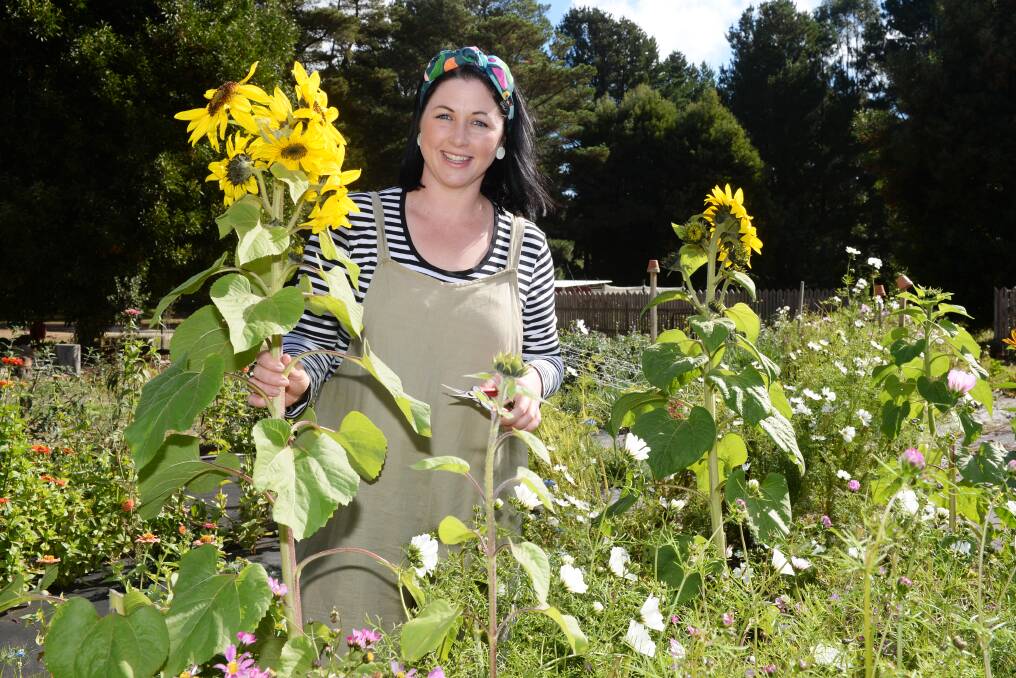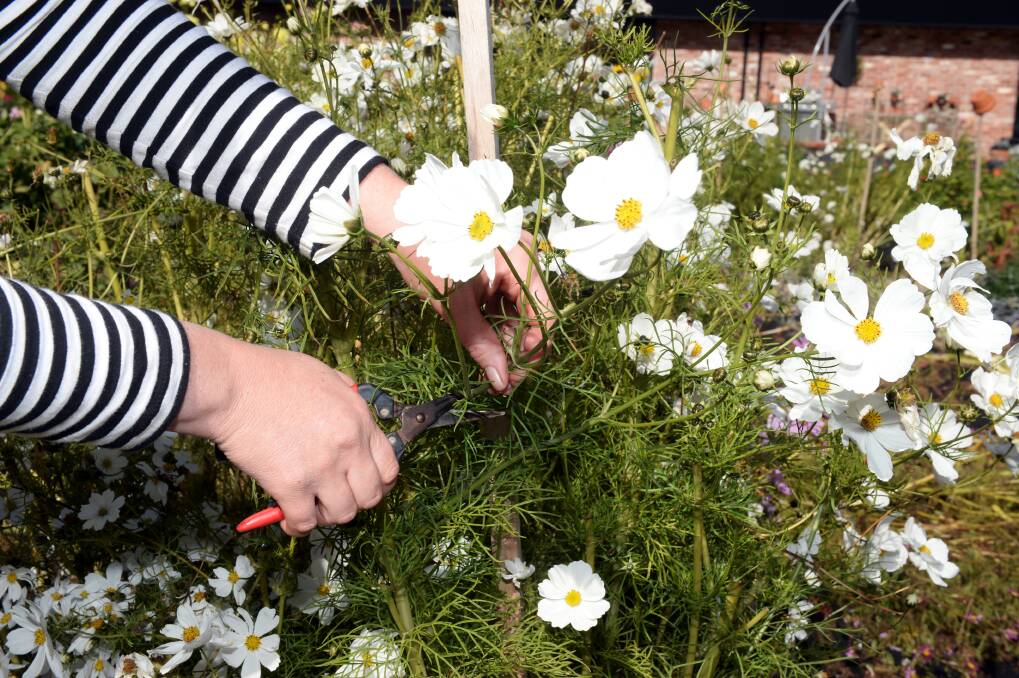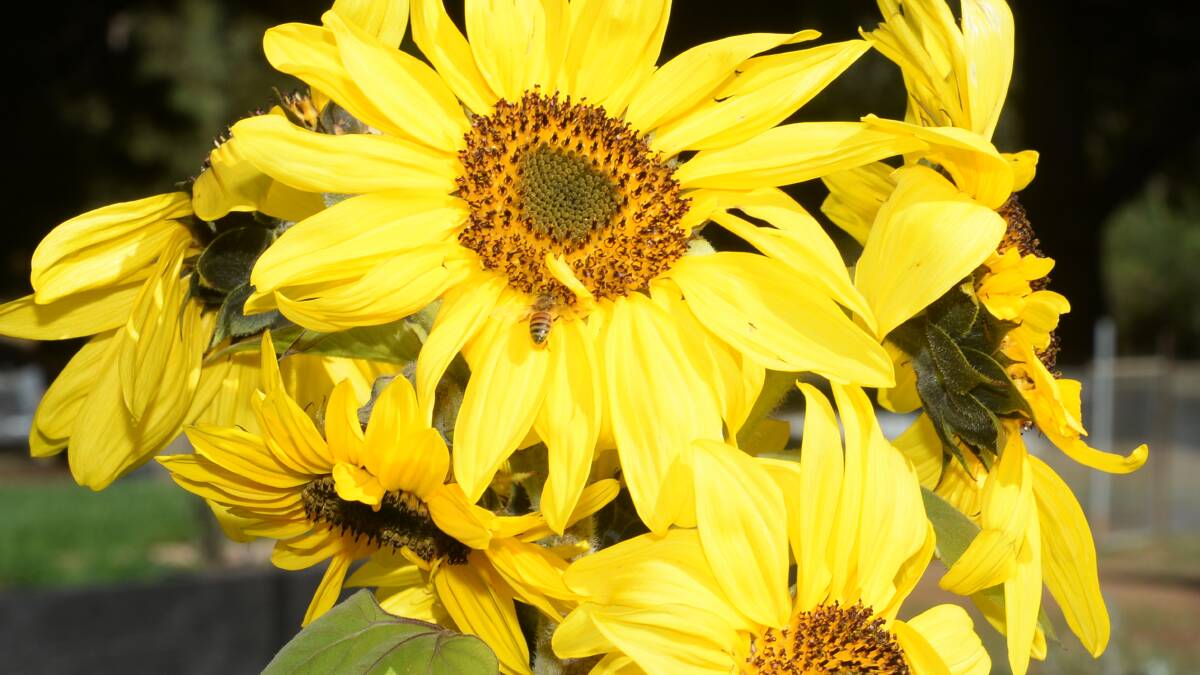
A LYONVILLE property, tucked away alongside the Wombat State Forest, is abloom with an array of colours.
Subscribe now for unlimited access.
$0/
(min cost $0)
or signup to continue reading
Fleurs de Lyonville is a bee-friendly micro flower farm situated on a small parcel of land, with everybody, including the animals, pitching in to contribute to the quality of the flowers.
THE BEGINNING
Janae Paquin-Bowden and her husband Chris had always intended to farm something on their property. But it was not until they were organising their wedding in 2014 and were faced with the challenge of trying to source locally-grown, chemical-free flowers for it that they realised they had stumbled upon an opportunity.
By reading a plethora of books and enrolling in an online course, the pair learned how to establish a farm and grow flower crops without the use of pesticides or other chemicals. From there, they spent a couple of years building up their collection of seeds and bulbs.
The family sowed its first crops in 2017 and is now in its second growing season. Ms Paquin-Bowden is on maternity leave from her job as a teacher and said running the micro flower farm was a great way for her to be at home with her babies while substituting some of the income she was receiving as a teacher.

THE FLOWERS
The micro flower farm is currently about a quarter of an acre and is brimming with a variety of English cottage flowers and natives.
"We grow lots of little things. Our main crop is dahlias, but we grow other things like sweet peas, sunflowers, kangaroo paws, anemones, billy buttons and others like delphiniums and Canterbury bells," she said.
Ms Paquin-Bowden said she chose the varieties because they were what she liked, but also because she tried to plant varieties to last the entire flower season from September through to May.
"They are all different shapes and sizes so some are spiky and others are round. The idea is that local florists and florists from Melbourne can come and buy a variety of things so they don't have to go to the big market in Melbourne, if possible. We are trying to build up [our farm] bit by bit to make it easier for them, but keep it sustainable as we are doing it organically."
THE FARM
The menagerie of animals that live on the farm - pigs, chickens, sheep and alpaca - play a big role in the process.
"We try to work together with the animals - it's like a little life cycle," she said.
The pigs start a flower bed by eating all of the weeds and grass before the chickens are brought in to finish them. The chickens eat the last of any grass, any bugs and scratch the soil to turn it over so that compost, made from animal manure, can be laid.
It is important for Ms Paquin-Bowden for her farm to be chemical-free.

"More often than not the flowers that you get from the big Melbourne market are imported or sprayed with many harmful chemicals and synthetic fertilisers. There are lots of horrible stories of florists' hands going numb and [them] having big respiratory issues," she said.
"But we also have kids running around so we want them to be safe to run through the flowers too."
In order to manage pests, the family has started to build up lots of little hedges.
"It was quite a bare paddock with just a few trees so we have been building up certain areas and we've noticed that all the native birds have come in now and that we have had hardly any pests in the last year because they have little habitats around the farm," she said. "So we will continue to encourage that."
Being chemical free is also good for the bees, making it a bee-friendly property.
THE FUTURE
Ms Paquin-Bowden adores her new role as a flower farmer.
"I just love it. I love being out there, watching them grow and cutting from them. The florists that come are so inspiring and have all of these unreal ideas. They are probably what makes it so special. I'm creative but they are a whole other level. It's a really wonderful environment to be part of," she said.

"And just looking outside in the morning makes you feel good."
The family will continue to grow its business every year until it is about two acres. With an increasing trend in micro flower farms in the region, a number of business owners have joined forces to make it more worthwhile for florists, and even brides, to visit and personally pick flowers.
"One idea is to create a hub, like a wholesale environment, for growers to take their blooms so florists can choose from a range in the once place."

